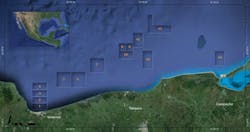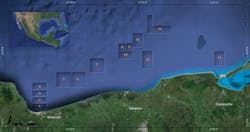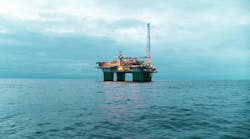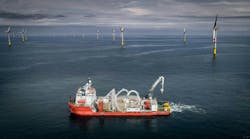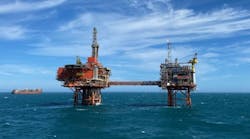Bids by pre-qualified companies due on July 15, 2015
Dallas Parker
Gabriel J. Salinas
John D. Furlow
Diego F. Perez
Mayer Brown LLP
On June 9, 2015, the Mexican National Hydrocarbons Commission (CNH) published the latest model production-sharing contract (the PSC) for the first phase of Mexico's Round One bid process relating to 14 contract areas located in the shallow waters of the Gulf of Mexico. The model PSC grants a contractor the exclusive right to explore for and produce hydrocarbons, at its sole risk and expense, in a specific contract area.
Contract phases and term
The term of the PSC is 30 years but is extendable for an additional two five-year periods, subject to CNH approval. Mexico's model PSC provides for four primary phases: the exploration phase, the evaluation phase, the declaration of commerciality, and the production phase.
Exploration phase.Within 120 days following the effective date of a PSC, the contractor is required to submit an exploration plan to CNH for its approval. The PSC provides for an initial exploration period of up to four years from the effective date of the contract, during which the contractor is obligated to complete at least the minimum work program specified in the contract. A contractor may request an extension of the exploration period for an additional two-year period, provided that the contractor has met its minimum work obligtions and commits to carry out any commitments made in the minimum work programs that were not performed during the initial exploration phase. The contractor must also execute "work units" equivalent to an additional well. The contractor is subject to monetary penalties for noncompliance of the minimum work program.
Evaluation phase. During the exploration period, the contractor may request CNH approval of a work program and budget to evaluate a discovery for the purpose of determining whether the discovery is a "commercial discovery." The term of this evaluation period is 12 months, but this period may be extended for an additional 12 months if approved by the CNH.
Declaration of commerciality. A contractor is required to inform CNH if it determines that any discovery is "commercial" within 60 days of the end of any evaluation period. If a discovery is deemed commercial, then the contractor is required to submit a development plan for CNH's approval within one year of the declaration of commerciality.
Production phase. Beginning in the year in which the commencement of regular commercial production begins, the contractor is required to include in its work programs a production forecast for each well and for each field. The contractor must carry out all construction, installation, repairs and reconditioning of the wells, gathering facilities and any other facilities necessary for the production operations, in accordance with the work program and in compliance with the risk management program for the project.
Reduction and relinquishment. If a contractor is not granted the additional exploration period at the end of the initial exploration period, the contractor is required to relinquish and return 100% of the contract area that is not subject to a development plan approved by CNH or that has not been designated as an evaluation area. At the end of the evaluation period, the contractor is required to relinquish and return 100% of the evaluation area if the contractor does not declare a commercial discovery; or, having declared a commercial discovery, it fails to submit a development plan or fails to obtain CNH approval for such plan. Notwithstanding the above, if the contractor was granted the additional exploration period, at the end of the initial exploration period the contractor must relinquish and return no less than 50% of the contract area that is not subject to an approved development plan. At the end of the additional exploration period, the contractor is required to relinquish and return 100% of the contract area that is not subject to an approved development plan or that has not been designated as an evaluation area. At the end of the evaluation period, the contractor is required to relinquish and return 100% of the evaluation area if the contractor does not declare a commercial discovery; or, having declared a commercial discovery, it fails to submit a development plan or fails to obtain CNH approval for such plan.
Payments and allocation
The monthly payments to the state will be comprised of (i) an exploration phase contract fee, to be paid in cash (ii) the volume of hydrocarbons equivalent to the amount of the applicable royalties, and (iii) the volume of hydrocarbons that corresponds to the state's share of operating profits as initially offered by the contractor and subsequently adjusted.
On the other hand, the monthly payments to the contractor will be comprised of (i) the volume of hydrocarbons allocated for recovery of eligible costs, and (ii) the volume of hydrocarbons that corresponds to the remaining share of operating profits after payment of the state's share of operating profits.
The volume and quality of the net hydrocarbons produced (these are the total produced hydrocarbons less the hydrocarbons used for self-consumption in field operations) is to be measured at a specified metering point, subject to certain exceptions. The contractor is permitted to market its share of production on its own or through a marketing firm. The contractor may use produced hydrocarbons for the oil and gas operations (including for enhanced recovery projects) as fuel or for injection or lifting, free of cost, up to the levels approved by CNH in the development plan.
Annual work programs
The contractor must submit annual work programs for CNH approval regarding each of the oil and gas operations contemplated under the contract. The contractor must also provide quarterly reports to CNH regarding the progress of the oil and gas operations conducted under the contract. Except as provided by law, once certain oil and gas operations have been approved by CNH within an annual work program, further CNH approval is not required for the design, engineering, and construction of the facilities contemplated in the relevant annual work program or the manner in which operations are conducted.
Budgets and costs
The contractor must also submit for CNH approval a budget for each annual work program. Costs incurred in relation to the oil and gas operations under the contract will be recoverable costs if they comply with the guidelines issued by the Secretary of Treasury and the respective accounting procedures.
Ownership of project assets
During the term of the PSC, the contractor will maintain title to all project assets and infrastructure. Upon termination of the contract for any reason, title to such assets will pass to the state, at no charge. The contractor may lease assets for their use in the oil and gas operations, provided that the leasing contract includes an assignment option in favor of a third-party operator designated by CNH in case of early termination of the contract.
Unitization
The PSC includes a unitization mechanism. If a discovery is part of a structure, formation or deposit that extends beyond the contract area, the contractor is required to inform the Ministry of Energy (SENER) and CNH. Following this notice, the contractor will be subject to a unitization determination that will be made by the SENER.
Contract guarantees
For the initial exploration period and the additional exploration period, the contractor must submit a performance guarantee in the form of an unconditional and irrevocable letter of credit in favor of CNH. Also, simultaneously with the execution of the contract, the contractor or each of the companies comprising the contractor (in case of consortiums) must submit a corporate guarantee to CNH.
Environmental obligations
The contractor is obliged to carry out all operations related to the abandonment of the contract area. If the contractor makes a commercial discovery, the contractor is required to set up an investment trust, under joint control of CNH and the contractor, as a reserve to fund abandonment operations in the contract area. The contractor will be responsible for all environmental protection obligations and commitments pursuant to applicable law, best industry practices and environmental permits, as well as for the damages caused to the environment by its oil and gas operations.
Subcontractors and national content
The contractor may subcontract for the supply and rendering of specialized equipment and services as long as this does not represent a de facto substitution of the contractor as an operator. A contractor will be subject to a minimum national content percentage of the goods and services procured for oil and gas operations under the contract and subject to monetary penalties for noncompliance. In addition, a contractor must give preference to national goods and services under equal price, quality, and delivery time circumstances.
Other provisions
The PSC includes a number of standard contractual provisions, including a governing law clause (the contract is governed by Mexican law); a force majeure clause (providing that if operations are interrupted for two continuous years or more, either party has the right to terminate the contract); an assignment clause (requiring prior CNH consent) and indemnification clause. The indemnification clause requires the contractor to indemnify and protect CNH and any other governmental authority, and their employees, representatives, advisors, directors, assignees or successors for any actions, claims, damages, costs, taxes, expenses and losses for noncompliance of the contract and damages caused by the contractor or its subcontractors, among others. In addition, the CNH may terminate the PSC by administrative rescission or contractual rescission upon the occurrence of certain events included in the PSC.
In the case of a dispute, mediation is mandated as a first step for up to three months. The Mexican federal courts are required to resolve any issues related to the administrative rescission of the contract while all other disputes are required to be resolved by arbitration under the UNCITRAL rules, subject to the decision of three arbitrators, conducted in Spanish, and in The Hague, the Netherlands. •
The authors
Dallas Parker is leader of Mayer Brown's Mexico Energy Reform Initiative and serves as leader of the Corporate & Securities practice in the firm's Houston office. Parker represents clients in a wide range of corporate and securities law matters with a career-long focus on the oil and gas industry. He earned a BA from Vanderbilt University and a JD from The University of Texas School of Law.
Gabriel Salinas is a senior associate in Mayer Brown's Global Energy Practice Group. Salinas has experience representing companies in energy projects and transactions throughout Latin America, with particular experience in oil and gas, power generation and infrastructure projects in Mexico. Gabriel obtained his LLM from Harvard Law School and JD from Facultad Libre de Derecho de Monterrey in Mexico.
John D. Furlow is an associate in Mayer Brown's Global Energy and Corporate & Securities practices in the firm's Houston office. His practice focuses on international and US energy transactions, capital markets, mergers and acquisitions, and general corporate governance. Furlow earned his JD from The University of Texas School of Law and his BA from Vanderbilt University.
Diego F. Perez is a foreign attorney in Mayer Brown's Global Energy and Corporate & Securities practices in the firm's Houston office. His practice focuses on energy and infrastructure projects, with particular experience in the oil and gas industry. Perez earned his LLM from Columbia University Law School and a JD from the Pontificia Universidad Católica del Perú.
